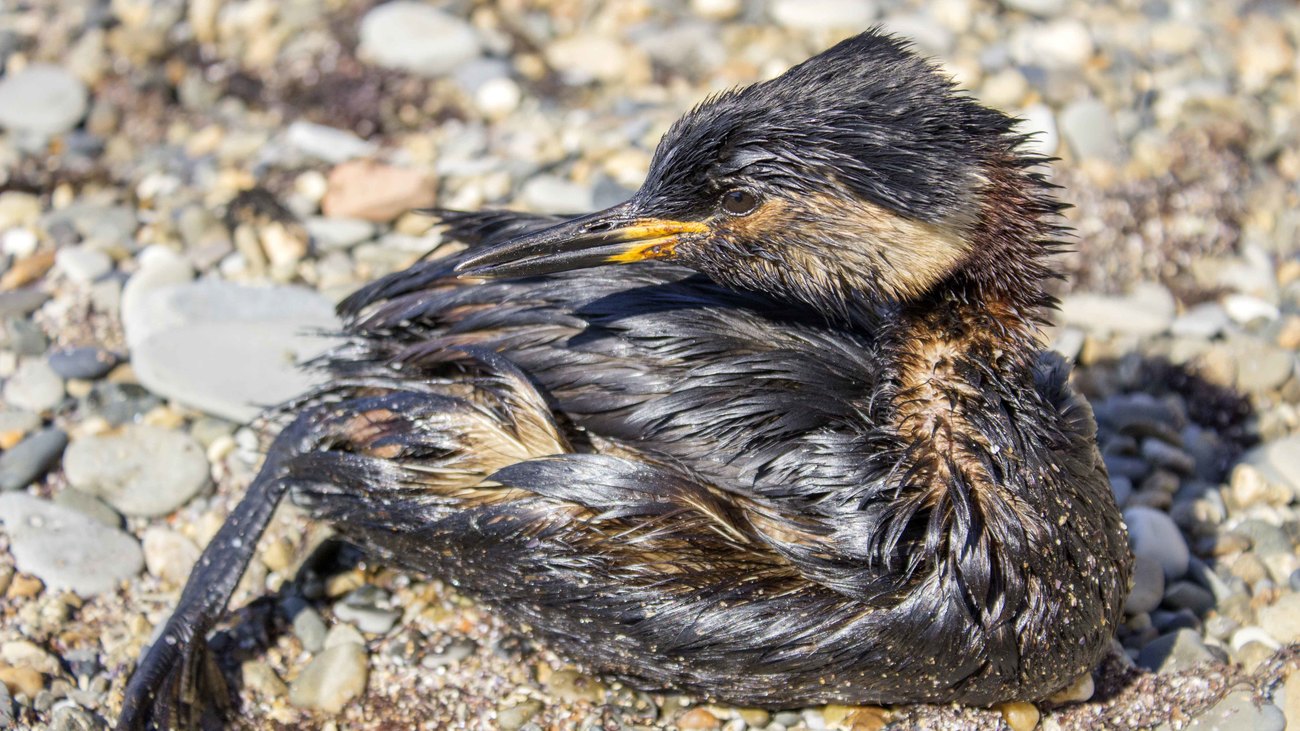how can we change the fate of oiled wildlife following an oil spill?
how can we change the fate of oiled wildlife following an oil spill?

The International Fund for Animal Welfare (IFAW) is working with Sea Alarm and the governmental authorities from Saudi Arabia, Sudan, Jordan and the legitimate government of Yemen on how to rescue wildlife impacted by oil spills. The online training events scheduled for March and April 2021 focus on operational aspects of responding to oiled wildlife in real time. Critical topics include capturing, transporting, stabilizing, washing, providing veterinary care and releasing oiled animals. We also review factors including the effects of oil on wildlife, the stages of developing preparedness and how to effectively manage oiled wildlife response operations. These trainings were encouraged and supported due to concerns regarding oil spillage from the Floating Storage and Offloading (FSO) Safer Tanker in the Red Sea. Located north of the Yemen city of Al-Hudaydah and estimated to contain about 1.14 million barrels of oil, the tanker poses a risk of a serious environmental disaster.
A growing threat to wildlife
Since the opening of the Suez Canal in 1869 and the discovery of oil in the mid-1900s, the geopolitical significance of the Region and the importance of these waters for international trade have grown enormously. Many of the bird and marine species found around the Red Sea are endangered and already under pressure due to numerous threats such as overhunting, overfishing, and climate change. A serious oil spill on top of those pressures may further threaten the survival of many of these species. Preparedness plans need to be in place for dealing with any marine wildlife affected by an oil spill in the Red Sea.
Creating a trained network of oil spill responders
As Elsayed Mohamed, IFAW’s Regional Director explains , “Governments often have oil spill response plans in place, but we urge them to include wildlife response in their plans”. He continues, “IFAW and Sea Alarm are ready to provide support and cooperate with governments and the oil industry in the Middle East and North Africa to work together to set up the right response plan to protect birds and marine wildlife effected by oil spills in the region”. Hugo Nijkamp, Sea Alarm’s General Manager stressed the value of working together with IFAW to raise awareness of the importance of protecting the Red Sea’s marine wildlife in case of an oil spillage. The online trainings being provided, part of the EUROWA training portfolio, are just the first phase of a journey for authorities to develop better capacity for dealing with oiled wildlife emergencies in the Middle East Region.
The importance of these trainings is acknowledged by Saudi Arabia, Yemen, Sudan, and Jordan. As Akram Eissa Darwich, IFAW’s Program Director mentions, “None of these trainings would have been possible to hold without the support of the National Center for Wildlife in The Kingdom of Saudi Arabia and the Ministry of Water and Environment under the Yemeni legitimate government, the Ministry of Environment in Jordan, and the Higher Council of Environment and Natural Resources in Sudan”. He continues “We understand the pressure many of the countries are going through right now, especially in the wake of the COVID pandemic. Yemen in particular is going through extremely challenging times, but that did not stop them and we are greatly appreciative of their cooperation”.
Building the capacity of the concerned authorities is divided into three online training courses; each for a specific group of responders and for a different objective. The first training focused on volunteers and technicians who will implement the first and basic steps of the response, such as search and collection of waterfowl and oiled animals, transporting and handling them, and stabilizing them until experts arrive who can carry out washing and rehabilitation so animals can be returned to the wild. The second course targeted decision makers and managers in order to develop plans and strategies to secure the necessary infrastructure, facilities, and tools for dealing with oiled wildlife, in addition to building the right teams to implement these plans. The third training course concentrated on specialized veterinarians who will contribute to the rescue operation from the beginning and who wish to take responsibilities in a rehabilitation center during an oil spill.
IFAW, Sea Alarm, and EUROWA trainers from Project Blue Sea (Germany) and Wildlife Rescue Centre Ostend (Belgium) conducted the first of the three trainings on 17th March 2020. Sea Alarm provided the second course on 31st March and 1st April, while the final veterinarian course on 7th and 8th April will be delivered by EUROWA trainers Philippe Gourlay from the Centre Vétérinarire de la Faune Sauvage et des Ecosystèmes (France) and Ian Robinson (independent expert). Such training events are usually conducted face to face and require some practical elements, but given the current situation and difficulties, these trainings were set up to take place “virtually” to ensure the safety of the staff and participants. Participants expressed their hope that there will be opportunities to complete the practical elements of the training, and to continue the preparedness journey across the region in the future. Creating positive change has no limits or borders. There is a lot of work to be done and we must continue to utilize the resources we have to keep moving forward.
Related content
Every problem has a solution, every solution needs support.
The problems we face are urgent, complicated, and resistant to change. Real solutions demand creativity, hard work, and involvement from people like you.